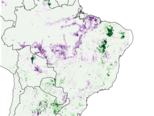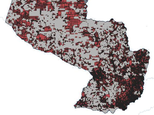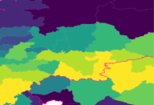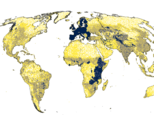Interdisciplinary Science in the Digital Age
Our projects focus on large spatial, temporal, and thematic scales, and integrate between multiple disciplines. Given this complexity, we routinely conceptualize and implement new methods and tools to tackle the challenges of interdisciplinary research using modern digital technologies (more)
Global Land-Use Dynamics
We address long-standing gaps in Global Change and Sustainability-related sciences by developing gridded data products on recent global land-use dynamics (more)

Dynamics in Ecological Systems
We develop data, modelling frameworks, and computational tools to address current limitations in global knowledge of biodiversity and ecosystem dynamics (more)

Causes of Land-Use and Biodiversity Change
Human land-use drives changes in species habitats and populations, and in turn responds to changes in economic activity, governance systems, climate change, and other drivers. We study these causal relationships at multiple spatial and temporal scales (more)
Uncertainties in global land-use and land-cover datasets
Information on global land use and land cover is crucial when studying changes in biodiversity, food security, climate, and many other contemporary issues, but suffers from widespread uncertainties. We quantify and address these limitations (more)



